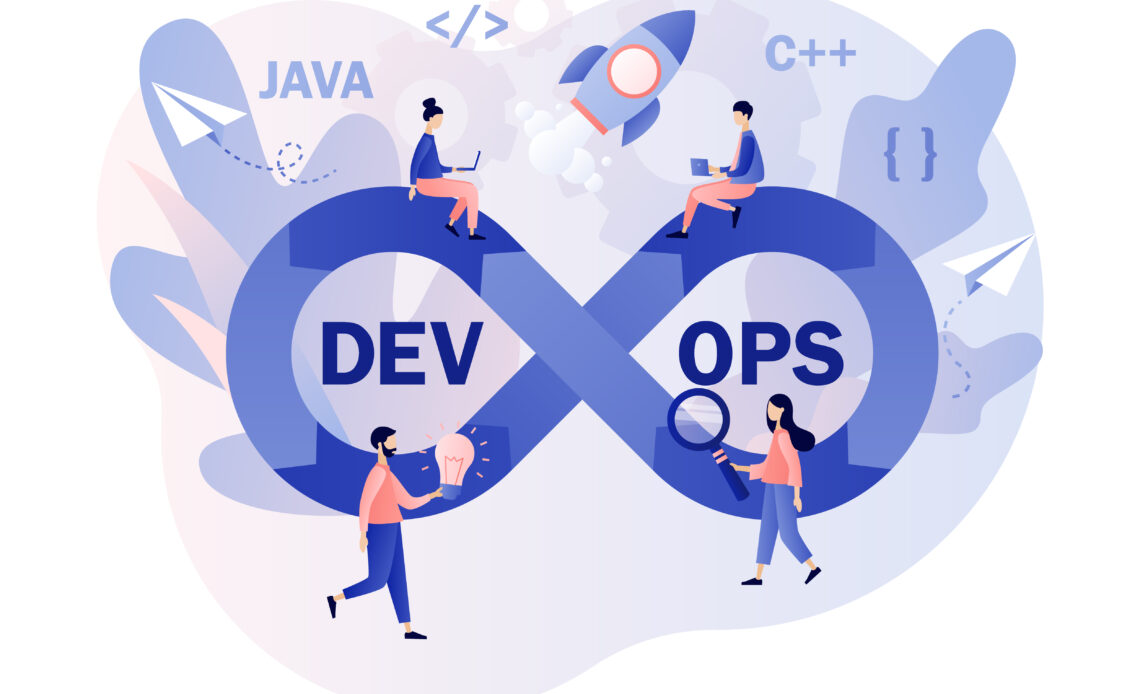
In the ever-evolving tech landscape, the integration of development and operations has become crucial for organizations seeking efficiency, speed, and innovation. This is where DevOps comes into play. But what exactly is DevOps, and what does a DevOps engineer do? And how much is DevOps engineer salary.
What is DevOps?
DevOps is a set of practices, principles, and tools designed to enhance collaboration and communication between software development (Dev) and IT operations (Ops) teams. The goal of DevOps is to streamline and automate the software delivery process, enabling organizations to deliver applications and services faster, with higher quality and greater reliability.
Key aspects of DevOps include:
- Continuous Integration (CI): Frequently merging code changes into a shared repository to detect and address integration issues early.
- Continuous Delivery (CD): Automating the deployment of code changes to production or staging environments, ensuring that new features and updates can be delivered quickly and reliably.
- Infrastructure as Code (IaC): Managing and provisioning computing infrastructure through machine-readable scripts, allowing for automation and consistency in infrastructure management.
- Monitoring and Logging: Implementing comprehensive monitoring and logging practices to gain insights into system performance and troubleshoot issues effectively.
DevOps Applications
- Continuous Integration/Continuous Deployment (CI/CD) Tools:
- Jenkins: Open-source automation server for building, deploying, and automating software projects.
- GitLab CI: Integrated CI/CD pipeline within GitLab that supports automated testing and deployment.
- CircleCI: Cloud-based CI/CD service for automating the build and deployment process.
- Infrastructure as Code (IaC) Tools:
- Terraform: Tool for building, changing, and versioning infrastructure using a declarative configuration language.
- Ansible: Automation tool for configuration management, application deployment, and task automation.
- Chef: Infrastructure automation tool that manages configurations and deployments.
- Containerization and Orchestration:
- Docker: Platform for developing, shipping, and running applications in lightweight containers.
- Kubernetes: A platform for automating the deployment, scaling, and management of containerized applications, specializing in container orchestration.
- Monitoring and Logging Tools:
- Prometheus: A dependable and scalable open-source toolkit for monitoring and alerting.
- Grafana: An open-source platform for analytics and monitoring that seamlessly connects with multiple data sources.
- ELK Stack: Suite of tools (Elasticsearch, Logstash, Kibana) for searching, analyzing, and visualizing log data.
Roles and Responsibilities of a DevOps Engineer
A DevOps engineer is essential in connecting development and operations teams effectively.. Their responsibilities encompass a broad range of tasks, each crucial to the success of DevOps practices within an organization. Here’s a closer look at what a DevOps engineer typically does:
1. Automate and Streamline Processes
DevOps engineers focus on automating repetitive tasks to improve efficiency and reduce human error. This includes setting up CI/CD pipelines, automating deployment processes, and managing infrastructure through IaC tools such as Terraform or Ansible.
2. Monitor and Maintain Systems
Ensuring system reliability and performance is a key responsibility. DevOps engineers implement monitoring tools like Prometheus, Grafana, or ELK Stack to track system health, identify performance bottlenecks, and respond to incidents swiftly. They also manage logs to diagnose and resolve issues effectively.
3. Collaborate Across Teams
A significant aspect of DevOps is fostering collaboration between development, operations, and other relevant teams. DevOps engineers work closely with developers to understand application requirements, with operations teams to manage infrastructure needs, and with security teams to ensure compliance and safety.
4. Manage Infrastructure
DevOps engineers handle the provisioning and management of infrastructure using IaC tools. They ensure that infrastructure is scalable, reliable, and cost-effective. This includes configuring cloud services, managing servers, and ensuring the proper deployment of applications.
5. Implement Security Best Practices
Security is integral to DevOps practices. DevOps engineers integrate security practices into the development and deployment processes (a practice often referred to as DevSecOps). They conduct vulnerability assessments, manage access controls, and ensure compliance with security standards.
6. Optimize Performance
Enhancing performance is vital to ensure a smooth and seamless user experience. DevOps engineers analyze system performance, identify areas for improvement, and implement changes to enhance application performance and reduce latency.
7. Troubleshoot and Resolve Issues
When issues arise, DevOps engineers are responsible for diagnosing and resolving problems quickly. They use monitoring and logging tools to identify the root cause of issues and implement solutions to prevent recurrence.
Skills and Tools for DevOps Engineers
To excel in their roles, DevOps engineers need a diverse skill set and familiarity with various tools. Key skills include:
- Programming and Scripting: Proficiency in languages such as Python, Bash, or Ruby.
- Configuration Management: Familiarity with tools such as Ansible, Chef, or Puppet.
- Containerization: Knowledge of Docker and Kubernetes.
- Cloud Platforms: Familiarity with cloud services like AWS, Azure, or Google Cloud Platform.
- CI/CD Tools: Experience with Jenkins, GitLab CI, or CircleCI.
- Monitoring Tools: Expertise in tools like Nagios, Prometheus, or ELK Stack.
Exploring Opportunities and Salaries for DevOps Engineers
As businesses increasingly rely on technology to drive growth and efficiency, the role of a DevOps engineer has become crucial. This article explores the career opportunities and salary expectations for DevOps engineers in India, the US, and the UK, and highlights some key DevOps applications.
DevOps Engineer Salary in India
In India, the salary for DevOps engineers can vary based on experience, skills, and location. Entry-level positions typically offer salaries ranging from ₹6,00,000 to ₹10,00,000 per annum. Mid-level professionals with several years of experience can earn between ₹10,00,000 and ₹20,00,000 annually. Senior DevOps engineers and those with specialized skills in cloud platforms or automation tools can command salaries upwards of ₹25,00,000 per year. The demand for DevOps engineers in India is growing rapidly, creating ample opportunities for career advancement.
DevOps Engineer Salary in the US
In the United States, the salary for DevOps engineers is among the highest globally, reflecting the competitive market and high demand. Entry-level roles typically start around $80,000 to $100,000 per year. Mid-level professionals can earn between $100,000 and $130,000 annually, while senior DevOps engineers or those in leadership positions can make upwards of $150,000 to $200,000 or more annually. Major tech hubs such as San Francisco, New York, and Seattle often offer salaries at the higher end of this range due to the high cost of living and competitive job market.
DevOps Engineer Salary in the UK
In the United Kingdom, DevOps engineer salaries also reflect a growing demand for these professionals. Entry-level positions generally offer between £30,000 and £40,000 annually. Mid-level roles can range from £40,000 to £60,000 per year, while experienced DevOps engineers or those with niche skills may earn between £60,000 and £80,000 annually. Salaries in London and other major cities are typically higher due to increased living costs and competition.
Conclusion
DevOps embodies a revolutionary method in software development and IT operations, focusing on collaboration, automation, and ongoing enhancement. A DevOps engineer plays a crucial role in implementing and managing DevOps practices, ensuring that software delivery is efficient, reliable, and secure. As organizations continue to embrace DevOps, the demand for skilled DevOps engineers will only grow, making it an exciting and rewarding field in the tech industry.







